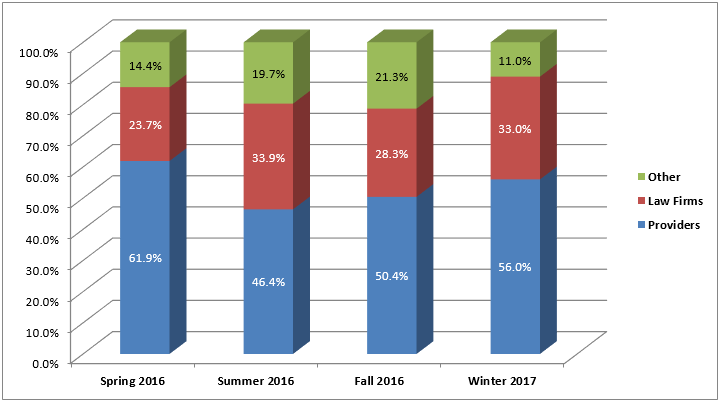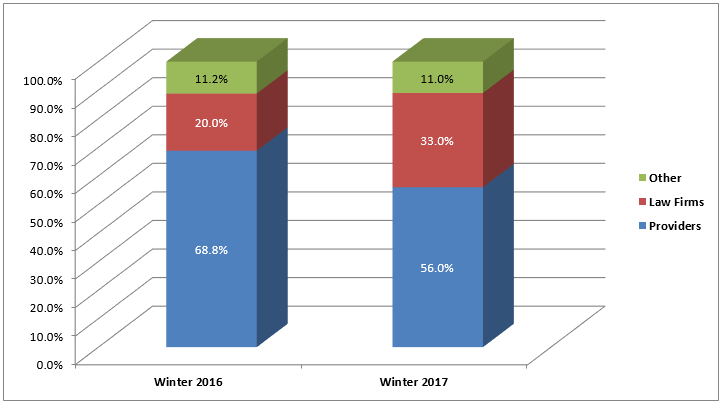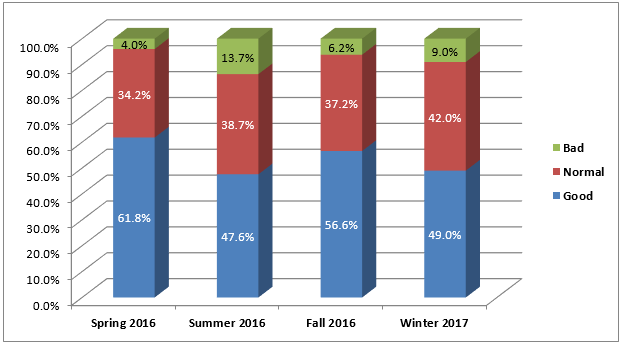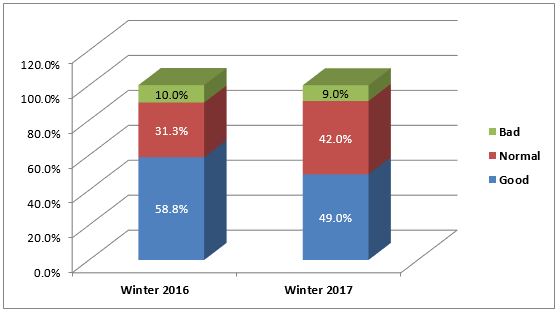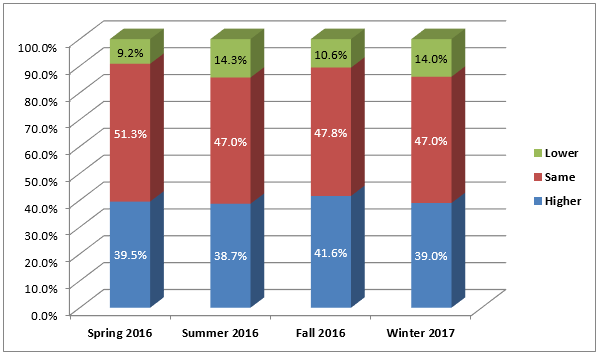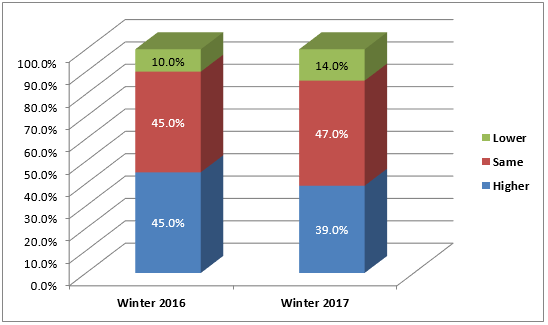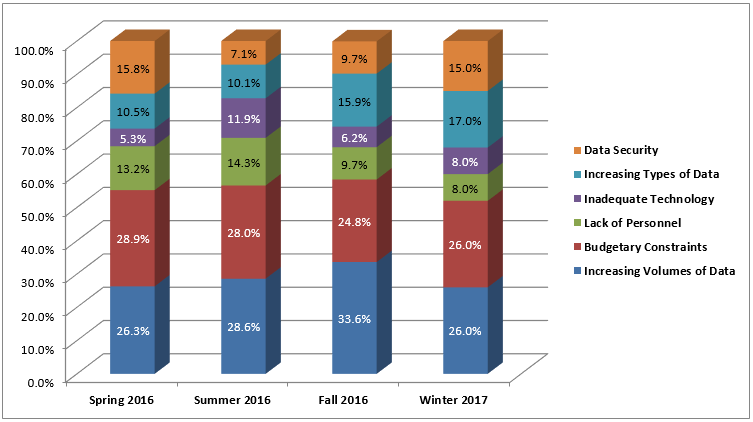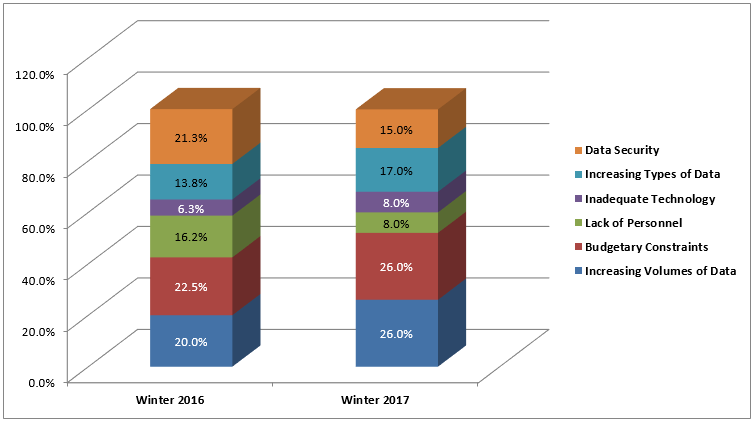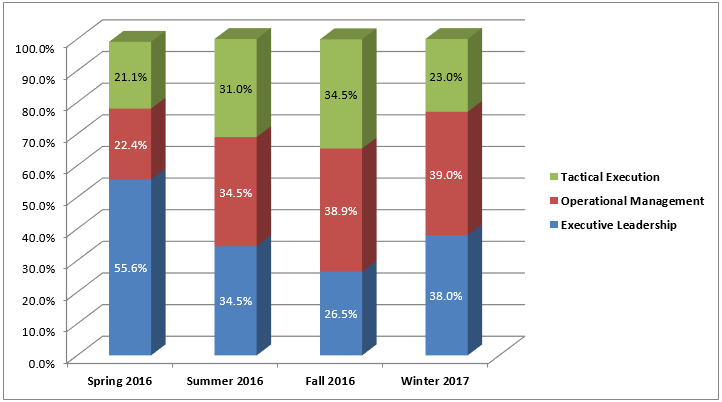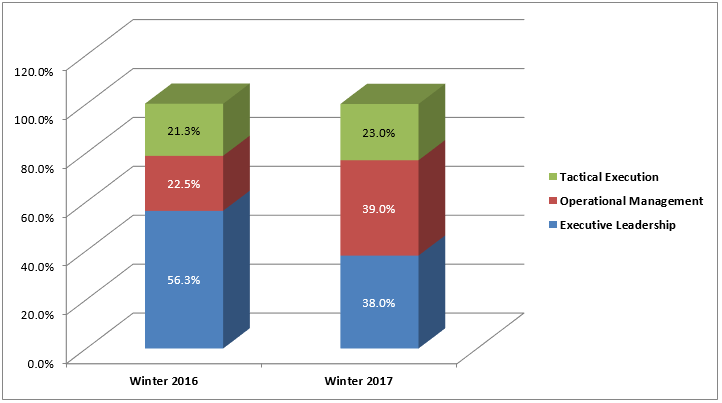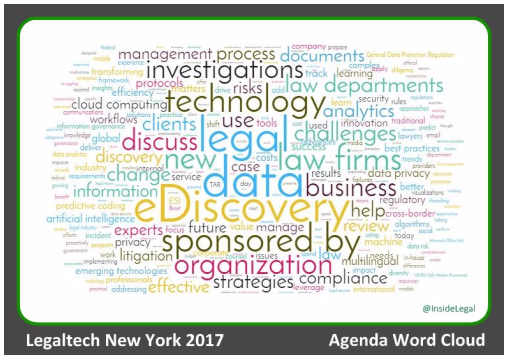David Horrigan of kCura: eDiscovery Trends
This is the second of the 2017 Legaltech New York (LTNY) Thought Leader Interview series. eDiscovery Daily interviewed several thought leaders at LTNY (aka Legalweek) this year to get their observations regarding trends at the show and generally within the eDiscovery industry.
Today’s thought leader is David Horrigan of kCura, the developers of Relativity. David is the E-Discovery Counsel and Legal Content Director at kCura. An attorney, law school guest lecturer, e-discovery industry analyst, and award-winning journalist, David has served as counsel at the Entertainment Software Association, reporter and assistant editor at The National Law Journal, and analyst and counsel at 451 Research. He serves on the Editorial Advisory Board of Legaltech News and the Data Law Board of Advisors at the Yeshiva University Cardozo Law School. David holds a Juris Doctor from the University of Florida, and he studied international law at Universiteit Leiden in the Netherlands. He’s licensed to practice law in the District of Columbia.
What are your observations about LTNY this year and how it compared to other LTNY shows that you have attended?
This year, ALM expanded the conference from Legaltech to Legalweek, bringing more legal issues into a larger overall event. I think many speakers did a great job in showing how technology relates to all areas of the law. For instance, Dean Erwin Chemerinsky did an outstanding job of bringing other areas of the law into the rest of the program. Many sessions did an excellent job of really hitting home how legal technology and the law aren’t just for programmers and legal teams—they affect everyday life.
For example, I liked how Dean Chemerinsky mentioned that, when he teaches Katz v. United States, it’s become clear to him that many of his law students don’t know what a telephone booth is. His example illustrates not only that Superman needs to find a new place to change clothes, it shows how technology changes every day life and highlights the importance of legal technology in eDiscovery.
This is my second Legaltech with kCura, but I’ve come to many Legaltech shows in New York over the past fifteen years or so, and I was first a speaker at Legaltech in 2001, and as an ALM alumnus from The National Law Journal and Legaltech News, it’s always great to come back. Having been here as a journalist, an in-house counsel, an industry analyst, and now representing kCura, I’ve seen a lot of change over the years. One of my favorite tales of technological change since my first Legaltech is that in the early part of the last decade, you could walk the Exhibit Hall and visit vendors with metadata wiping software. Such software is probably still great for corporate counsel negotiating contracts, but with today’s rules and case law, such metadata wiping would probably get an e-discovery lawyer sanctioned or in front of a bar ethics board.
One of the things I enjoy about being here with kCura that differs from my years at 451 Research is the ability to attend and live-tweet sessions where I’m not speaking. For the most part, when I was at 451, I was able to attend only the sessions where I was speaking because I was in back-to-back briefings with various eDiscovery vendors. Of course, I have to admit I miss the briefings with the many great people in the eDiscovery profession and industry. We live in contentious times, and I think it says a lot about the people in our industry that in my years with 451, I almost never heard eDiscovery vendors disparage each other. Sure, they said they’re software and services were better, but you didn’t hear people saying, ‘That guy’s software is crap.’
Speaking about your role as a speaker, I noticed that you’re a panelist on one session related to “new frontiers” for international discovery. With all of the developments in the past year related to data privacy issues, where do you think we’re heading from here?
Over the next 17 months, people will certainly be focusing on the EU General Data Protection Regulation (GDPR), which will go into effect in May of 2018. The GDPR would have certainly been a game changer before the election of the current administration, but now it is going to be a real game changer because, as you know, the United States does not meet adequate level of data protection under Article 25(6) of the 1995 Directive, and the GDPR will bring even stronger, harmonized requirements. Call me crazy, but I don’t think the new administration is going to be very receptive to changing US laws and regulations to harmonize them with the laws of other nations. Of course, we tend to be very Euro-centric in our international analyses of cross-boarder issues.
Last year, you and I participated on a couple of panel discussions involving Technology Assisted Review (TAR) where there was spirited discussion about the current state of acceptance of TAR, both during and after those panel discussions. Where do you feel we stand with regard to the current state of acceptance of TAR?
It’s clearly mainstream, and now we can add Australia as the fourth nation to join the TAR club of the United States, Ireland, and the United Kingdom with a state supreme court practice notes approving the use of TAR. Although it’s not a judicial decision—instead being a practice note from the Supreme Court of Victoria, I think it’s a big development. I think that acceptance of TAR is internationally growing. And, as Judge Peck said in Hyles v. New York City last summer, it’s generally accepted that if a producing party wants to use TAR, it can.
As far as the implementation of TAR, I really think we’re about to the stage where TAR is mainstream. Of course, it’s not used in every case, but TAR usage numbers have been increasing progressively, and I don’t expect any change there.
Do you think that TAR is a viable candidate to be used in all cases?
Some firms have said they run it on everything, and our polling as well as that of others, including Norton Rose Fulbright, show substantial increases in TAR use. Of course, as with any eDiscovery tool, there are some very small matters when you might not need TAR. It’s not really a question of whether you can use TAR on a small case – you can – you just might not need to use it on a small case. Having said that, in the Big Data era of 2017, there are now data-heavy matters where you really do need to use TAR.
There also seems to be quite a bit of debate as to whether TAR can be used in combination with keyword search. What are your thoughts about that?
When I was at 451 Research, I used to call it “assisted review technologies” (plural). Because there are so many different choices, I don’t think any of them is necessarily right or wrong. I think that they’re just different ways to “crack the nut.” There are times and places for keyword search. Despite what many have said TAR and keywords is not a zero sum game.
Another recent trend we’ve seen is with regard to an emphasis on technology competence for attorneys and we’re up to 26 states that have adopted some sort of technology competence requirement, with Florida being the first state that has required technology CLE for their attorneys. Do you think the increased emphasis on technology competence will change the general lack of understanding of technology within the legal profession?
It has to. These are mandatory ethics rules. Ethics rules are not something you can choose to follow “a la carte” – if your state passes a rule, you have to follow it. Because everyone’s lives are changing so much due to the proliferation of technology, the “luddite” lawyer who says “I went to law school so that I can avoid statistics” is in for a rude awakening. Clearly, technology is a part of the practice of law. Even most two year olds can swipe an iPad or an iPhone – if the two year olds are starting to get technology, lawyers need to get on board.
What are you working on that you’d like our readers to know about?
Obviously, the cloud is a big issue and, at kCura, we’re taking the hybrid approach. There’s a place for the on-premises approach and a place for the cloud approach and kCura is taking the hybrid approach of providing solutions to support both approaches. And, as always, we’re enthusiastic about our partnerships, including the new partnership we’ve just announced with CloudNine.
Thanks, David, for participating in the interview!
And to the readers, as always, please share any comments you might have or if you’d like to know more about a particular topic!
Disclaimer: The views represented herein are exclusively the views of the author, and do not necessarily represent the views held by CloudNine. eDiscovery Daily is made available by CloudNine solely for educational purposes to provide general information about general eDiscovery principles and not to provide specific legal advice applicable to any particular circumstance. eDiscovery Daily should not be used as a substitute for competent legal advice from a lawyer you have retained and who has agreed to represent you.





